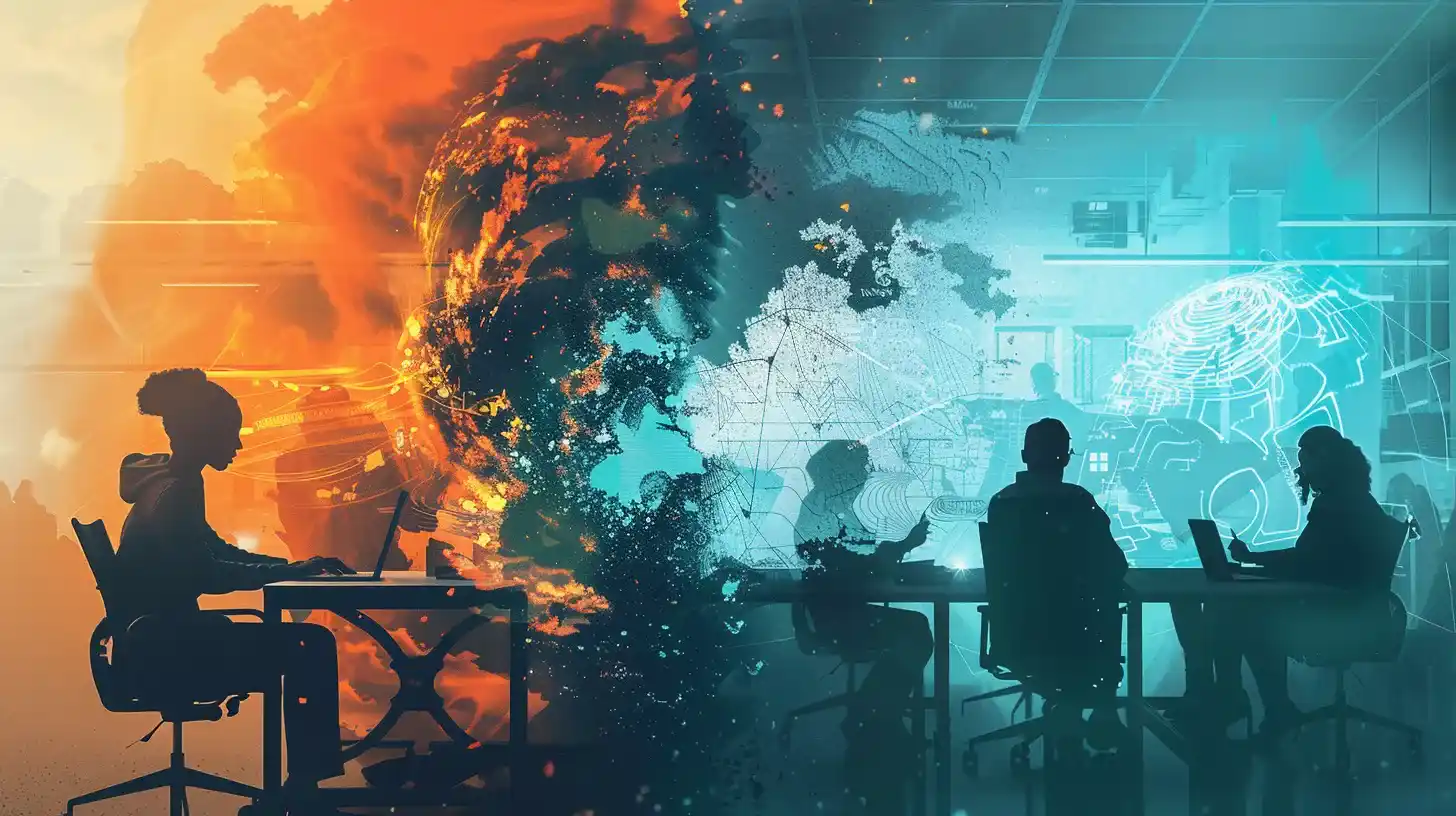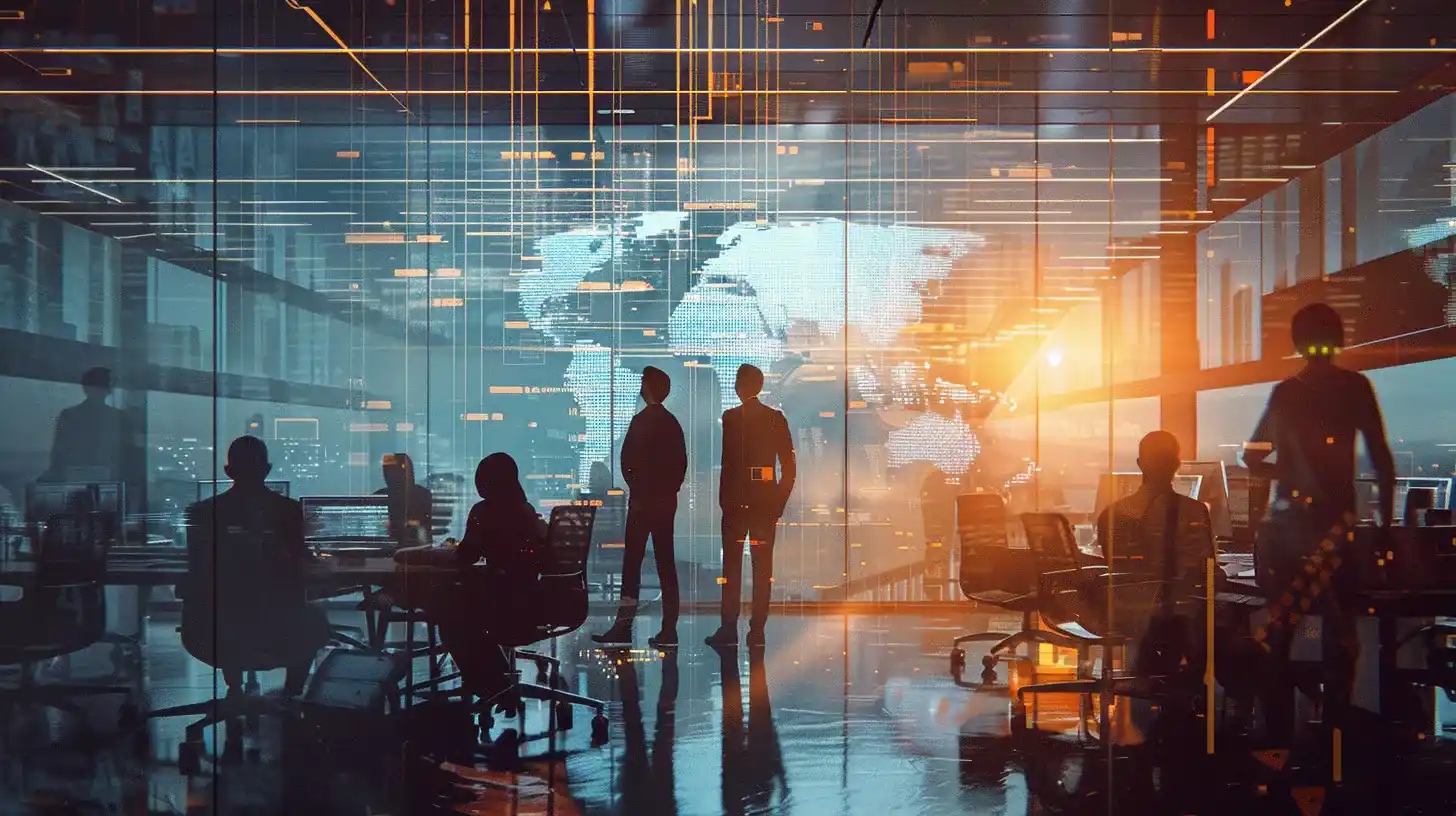Table of Contents
The Dawn of AI in the Workplace: A Double-Edged Sword
AI in the Workplace: As we stand on the brink of what many are calling the AI Age, concerns and anticipations about Artificial General Intelligence (AGI)—AI that surpasses human intelligence—loom large. Notable computer scientists and technologists have voiced their anxieties, suggesting that AGI could lead to mass unemployment, surpass human control, or even worse, cause unforeseeable consequences.
This narrative, while significant, risks overshadowing the immediate and tangible impact of AI technologies that are already reshaping our workplaces and lives.
AI: Beyond Apocalyptic Predictions
The discourse around AI often veers towards the dramatic, imagining scenarios where AI’s advancement triggers societal upheaval or cataclysmic events. This perspective, while engaging, inadvertently strips many of us of our sense of participation and control. It frames AI as an entity that is either to be wholeheartedly embraced or outright rejected, a decision seemingly reserved for Silicon Valley elites and high-ranking government officials.

However, this binary viewpoint neglects the nuanced reality that AI is already interwoven into the fabric of our daily professional lives, demanding immediate and thoughtful engagement from individuals at all organizational levels.
The true challenge lies not in debating the potential for a singular AI in the Workplace apocalypse but in addressing the myriad ‘mini-apocalypses’ that AI is precipitating through its incremental yet profound impact on jobs and industries. The notion that our workplaces and roles are being quietly revolutionized by AI isn’t speculative; it’s our current reality.
AI’s capability to enhance productivity and decision-making is already evident, as seen in early studies showcasing significant time savings and improved outcomes for those leveraging AI tools in their work.
AI and the New Work Paradigm
The integration of AI in the Workplace is altering the landscape of employment, particularly affecting roles traditionally considered immune to automation. This includes jobs that require a high degree of education, creativity, and analytical thinking. The push towards AI-driven efficiencies is inevitable, with tech giants like Microsoft and Google embedding advanced AI in the Workplace functionalities into their ubiquitous office suites, signaling a shift towards a more AI-centric work environment.
This evolution, however, need not spell doom for the workforce. On the contrary, it presents an opportunity for organizations to redefine productivity and employee engagement. The advent of AI can be leveraged to enhance the quality of work life, by automating mundane tasks and allowing employees to focus on more meaningful and creative aspects of their jobs.
This shift not only has the potential to increase job satisfaction but also to foster a culture of innovation and continuous learning.

Shaping the AI-Enhanced Workplace: A Call to Action
The question, then, is not if AI will transform the workplace, but how. Leaders and managers are at a crossroads, facing decisions that could either harness the potential of AI in the Workplace to enrich and empower their human workforce or succumb to short-sighted strategies that prioritize cost-cutting over sustainable growth.
The path forward requires a visionary approach, one that sees AI not as a threat to be mitigated but as a tool to be strategically deployed for the betterment of all stakeholders.
As we navigate this transformative period, the onus is on us to engage in proactive and inclusive dialogues about the role of AI in our professional lives. The decisions we make today will set the course for the future of work, influencing not only how we work but also the values and priorities that define our organizations. It’s a pivotal moment that calls for thoughtful leadership, innovative thinking, and a commitment to leveraging AI as a force for good.
Conclusion: Embracing AI as a Catalyst for Positive Change
In the face of AI’s rapid advancement, fear and uncertainty are natural responses. Yet, they need not define our approach to the future of work. By embracing AI as a tool for enhancing productivity, creativity, and job satisfaction, we can mitigate the risks while maximizing the benefits.
The journey ahead is fraught with challenges, but it also brims with opportunities—for growth, and innovation, and for building a workplace that is more humane, resilient, and adaptable to the demands of the 21st century. The future of AI in the workplace is not a distant horizon; it is here, and it is ours to shape.